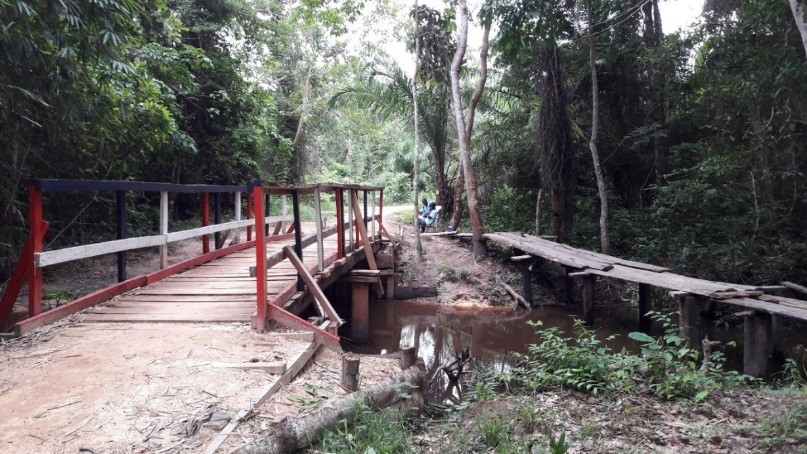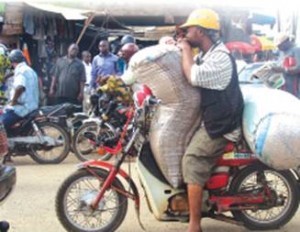Assessing the impact of track construction for motorbike taxis
£135,000 ESRC/DFID grant awarded to Dr Krijn Peters (Department of Political and Cultural Studies) to carry out research entitled 'At the end of the feeder road: assessing the impact of track construction for motorbike taxis on agrarian development in Liberia'.
Some of the world’s poorest people are found in isolated African villages. Lacking market access, rural producers typically earn little from whatever they produce, perpetuating subsistence production. Even though farmers may be willing to produce more for markets, better road infrastructure is a pre-condition for agricultural development, but is not forthcoming in light of the small volumes that are actually traded.
Road building/repair budgets in development countries are often directed at paved multi-lane roads linking provincial towns with the capital or major ports and feeder road construction in more rural areas. It is unclear how far this prioritisation is successful in stimulating cash-crop production in more isolated rural areas. Arguably, attention should be directed to addressing the basic isolation of small-scale producers through upgrading existing footpaths to tracks accessible to intermediate forms of transport. This seems to be particularly sensible in light of the recent introduction and rapid spread of motorcycle taxis in sub-Sahara Africa. Despite being responsible for the transporting the majority of passengers and goods in rural areas in Liberia and other African countries, international donors and governments are reluctant to invest in track-construction, as there is little data on its impact, as compared to conventional road building.



